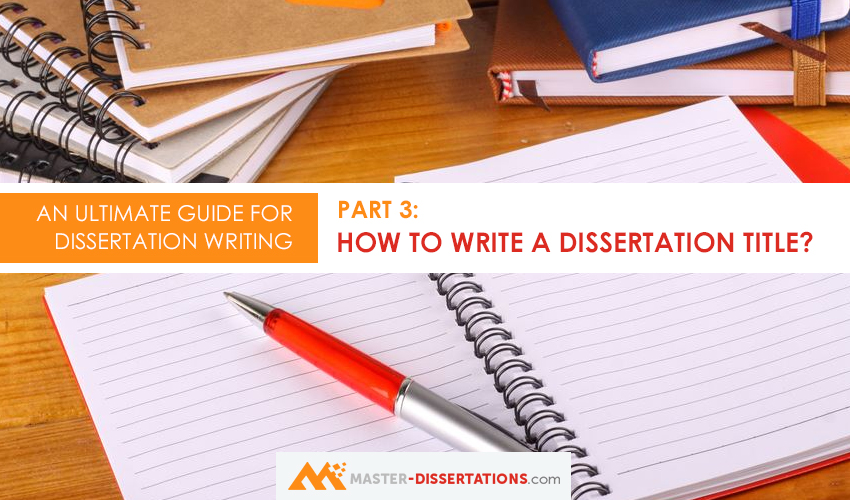
The title is possibly one of the first things you will notice about a book, film, video game and other types of published works. It is the title that instantly distinguishes one work from others. An effective and catchy title has the ability to really influence a reader’s, viewer’s or buyer’s decision. When a title is strong and eye-catching, it gives an idea of whether a book, movie and so on is likely to be worthwhile. Likewise, if the title is weaker, you may well feel reluctant to give it your time, even if its content actually turns out to be more worthwhile.
What Are the Functions of an Effective Title?
There are several things a good title should do in a limited amount of space. Essentially, its purpose is to catch the reader’s or viewer’s attention, provide a reason for going on reading or watching, and giving an outline of the content. Indeed, you could say that a title summarizes a summary i.e. it extracts the complete contents of a book or movie and condenses this into one phrase or sentence. Take this title as an example – Lord of the Rings. This immediately says this is a story about lordship or being master of some type of circle or ring.
A title does not need to provide a full description of the content e.g. How a Magician Hid a Precious Jewel in a Fire While His Followers Battled a Fierce Enemy. While this title might be more descriptive of a particular plot, it is not as catchy as that chosen for Tolkein’s book.
How does All This Affect Dissertation Writing?
You may be thinking that surely an academic text like a dissertation does not require these same types of catchy titles. Although the dissertation you write is sure to be read once – at least – (by whoever marks it), a good title really will help other people find your research work and maybe use it at some future time. Whenever you are given essays to write, it is likely you find yourself leaning towards those titles that are, in equal measures, both informative and catchy. This same principle will apply to other writers who are addressing the area you are now addressing.
Furthermore, examiners and/or markers may use the title of a paper to get a preliminary idea of the scope and breadth of the work you have done. In much the same way that an effective introduction can lead readers into a text and encourage them to accept your viewpoints or arguments, a good title can do the same.
How Should You Write Your Title?
Begin with a Working or Interim Title
Once your research proposal is written, your next task is to try to develop a working or interim title that will give you flexibility as you progress through the research stage. All the while, however, you should keep the specific focus of your work in mind. You can begin in a broad or quite a general way, for example, A Comprehensive Research of 18th Century Literature and then continue moving your focus to a specific aspect of this subject, e.g., Literature Preferences in the Years 1700 to 1750.
Something to beware of: when the basic principles or framework for your project have been decided and the committee has approved your research proposal, you will not be able to alter this. Therefore, you need to be certain the title you have selected allows you sufficient freedom to continue researching a subject area that interests you.
The Final Title
A working or interim title and the title you finally decide on differ in terms of their purpose or what use they will be put to. This interim title should help you maintain focus and garner interest and input from your peers while you are writing. When your dissertation is finished, you will not need the title to stay focused. Hence, you can alter it so that it more interesting and catchy. However, it is a good idea to retain some part of your working or interim title. Looking back at the example given earlier, your final title could be Literature and Revolt: Understanding the Lower Class Revolt through the Literature of 1700 and 1750. Although you might think this is a bit long, it does give readers (and scholars of the future) a good hook i.e. Literature and Revolt, it gives them an idea what to expect from your paper i.e. Understanding the Lower Class Revolt, and it says quite specifically the period you are focusing on i.e. the Literature of 1700 to 1750.
What Else Could Help You?
In the course of doing the research for your initial proposal, you may find that some of your reading materials do not provide answers to every question you have. It may even be you feel there are knowledge gaps in existing information or in the wider debate in your subject area. So, it may be an idea to incorporate some aspect of this into your interim title, which you can transfer later into your final title. As an alternative suggestion, it may be that you identify a good quote within one of the texts you have read or found an expert opinion you feel sums up your own particular argument, or opposes your argument and gives you the opportunity to counter-argue it in your paper. Quotes can be used to great effect both to hook readers and show them the breadth and depth of the research work you have done.
More than anything else, originality is needed in a successful dissertation. It lets readers know what a dissertation covers but without revealing too much (i.e. it is a summary of the overall work). It additionally gets readers interested so that they read your dissertation and not another person’s i.e. it lets them see your work is better quality than others!
| How to choose amazing topic for dissertation? | How to Write Dissertation Abstract |




